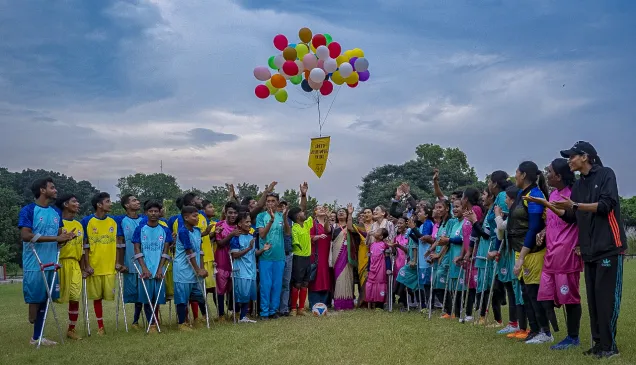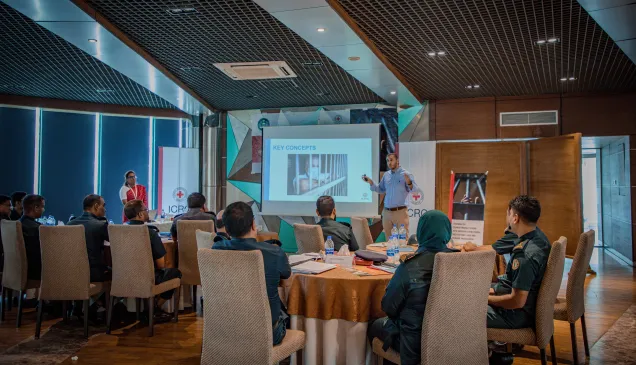Bangladesh: Breaking stereotypes through wheelchair basketball
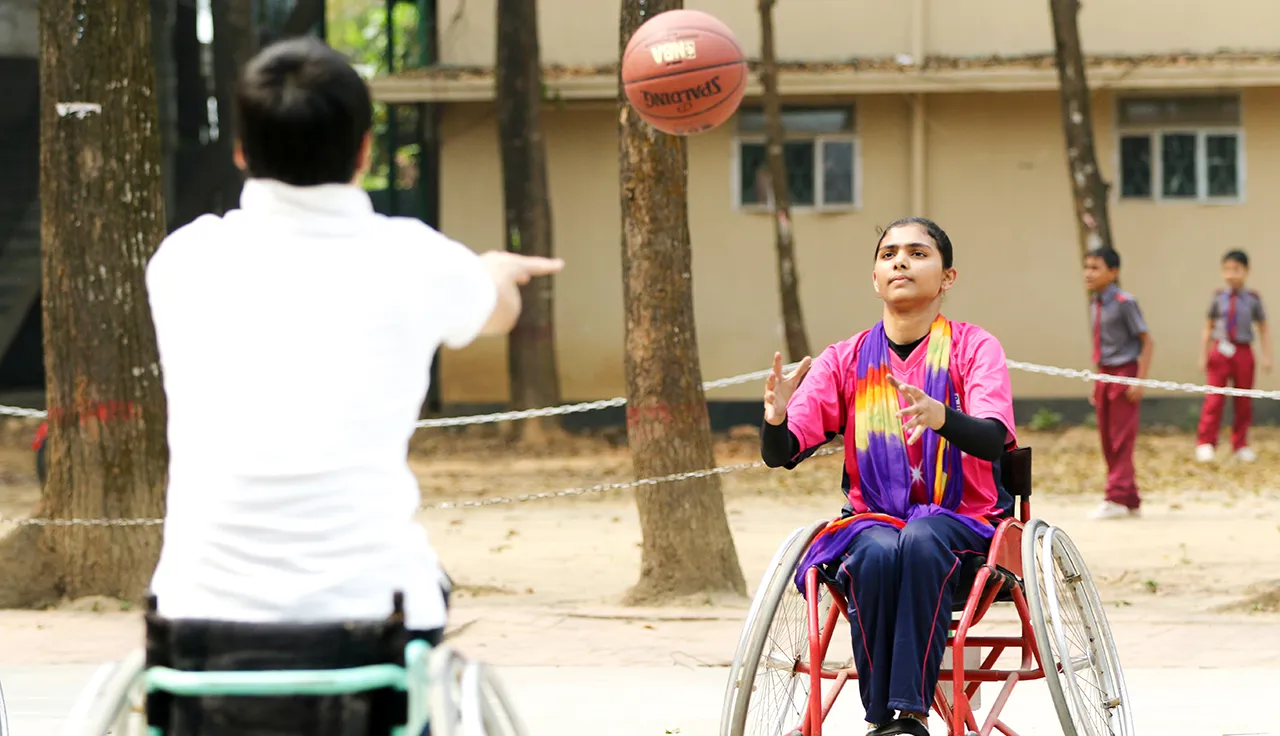
People with physical disabilities in Bangladesh often face societal barriers, evoking negative perceptions and discrimination. They are stigmatized and are often considered dependent. Of the total disabled population, women are highly marginalized and more vulnerable due to prejudices, maltreatment and poverty.
The Centre for the Rehabilitation of the Paralysed (CRP), together with the ICRC, continues to push the envelope by engaging these women in wheelchair basketball. Formed in 2016, the ICRC-sponsored and CRP-facilitated team has attended several training camps and international tournaments in Nepal (2017) and Indonesia (2018). The side won the championship in Bali, defeating the hosts.
We got to chatting with a few members of the team and were amazed at their courage and never-say-die attitude.
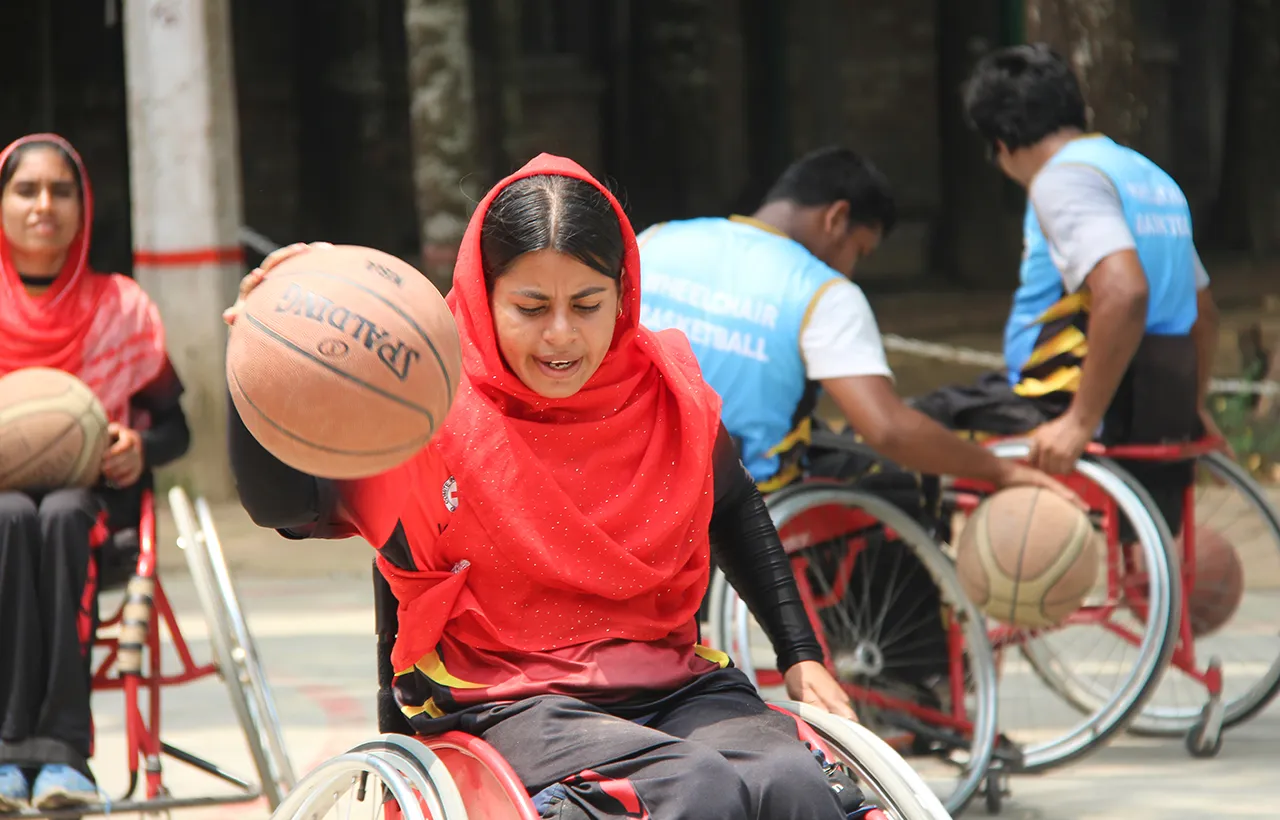
Shapna
Lack of advanced emergency care left Shapna in a critical condition after she was involved in an accident in 2007. Initially given only a few hours to live, she survived the surgery but the doctors could not save her limbs . A distant relative told the family about CRP and that proved to be a game-changer.
I was told I wouldn't survive, but I'm active and play wheelchair basketball for Bangladesh.
Though many questioned her decision to join the team, the same people now boast about her in front of the world. "They value me here and don't judge me because of my disabilities." Shapna also works as the receptionist at CRP.
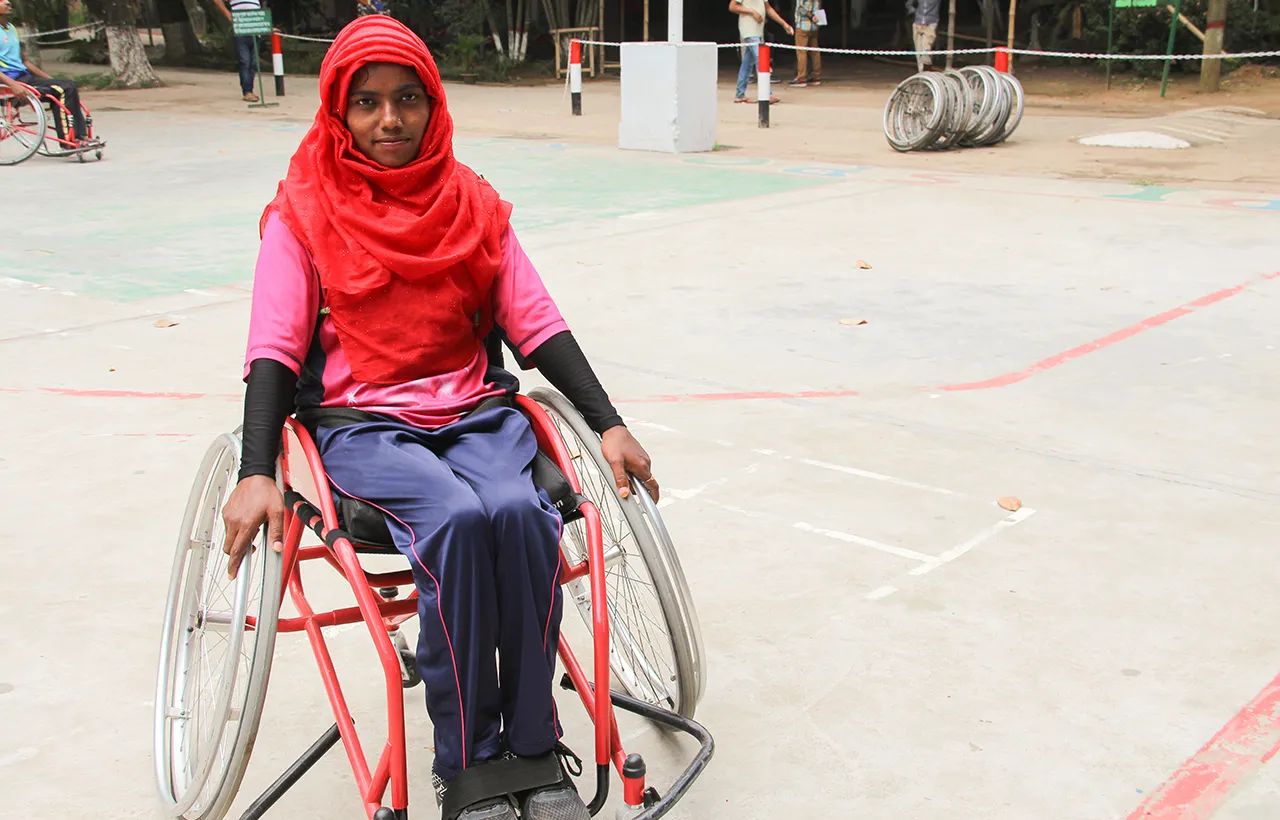
Her name is Ratna
Belonging to a rural area, Ratna had never even dreamt of boarding an airplane, much less play professional basketball. But life had different plans for her. "I was only 11 when I got married and became a mother soon after. A fall from the roof left me disabled. Since then, this wheelchair has been my only constant."
Ratna gets to meet her son very rarely, for her husband's family doesn't like it. But whenever they see each other, the mother-son duo talk their hearts out.
I show him videos of my game and that makes him very excited. I got my motivation to live from basketball.
Overcoming her inhibitions of practising alongside the men's team was a tough ask. But those days are long gone. Today, Ratna is a confident basketball player who feels tremendous pride in representing her country in the global arena.
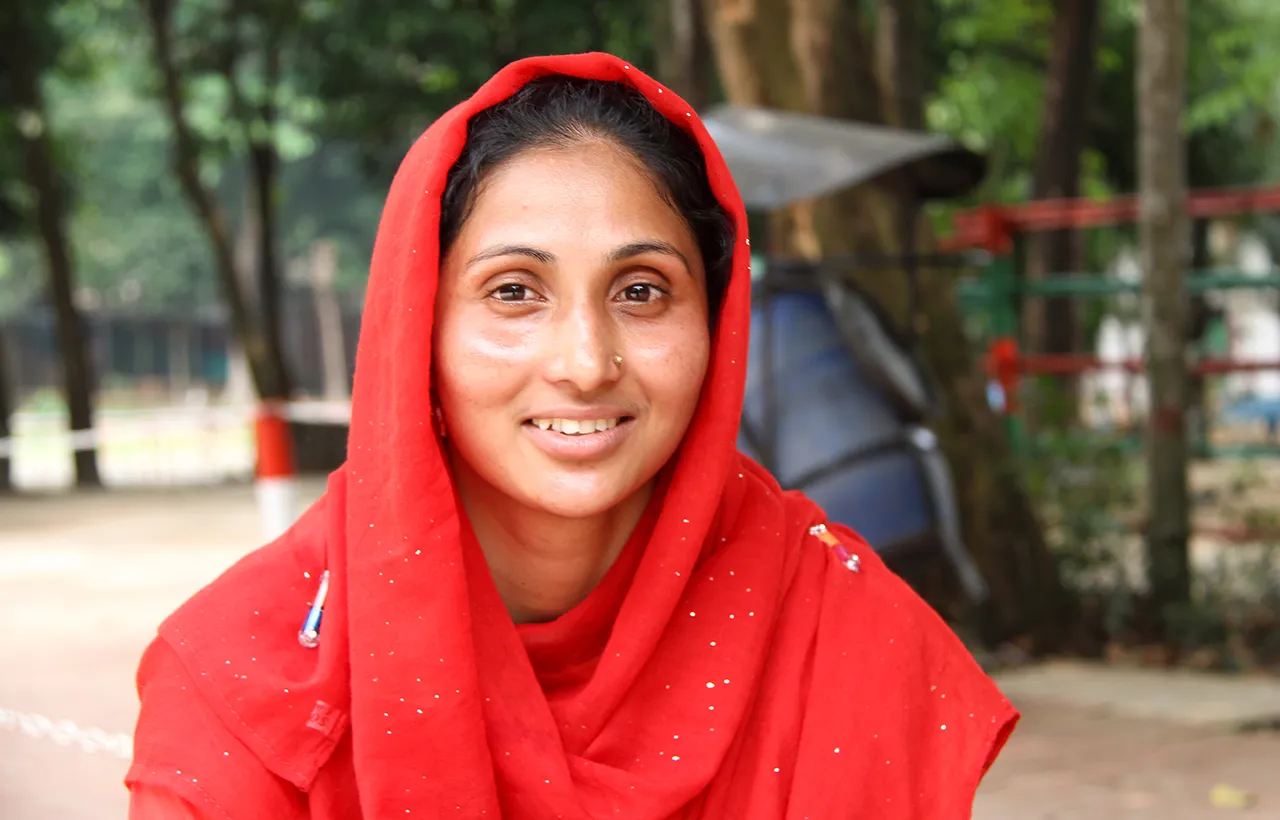
Khatun
Fahima can't forget the last match of the series they played in Nepal.
My fingers were bleeding but all of us wanted to give our 100%. The joy we felt upon winning is indescribable!
The team had earlier lost two back-to-back matches and she had cried hysterically after the defeat.
The Fahima of today is nothing like the Fahima who was confined to the wheelchair due to a fall from the roof. "I was terribly depressed and didn't think I had any future. But my conservative family stood right behind me and supported me each step of the way," she recounts. Now working as a receptionist at the CRP, besides being a basketballer, Fahima appreciates all the effort that the centre and the ICRC put into rehabilitating her and many others like her. It's due to their dedication that this determined athlete vows to become a better player and win tournaments for her country.
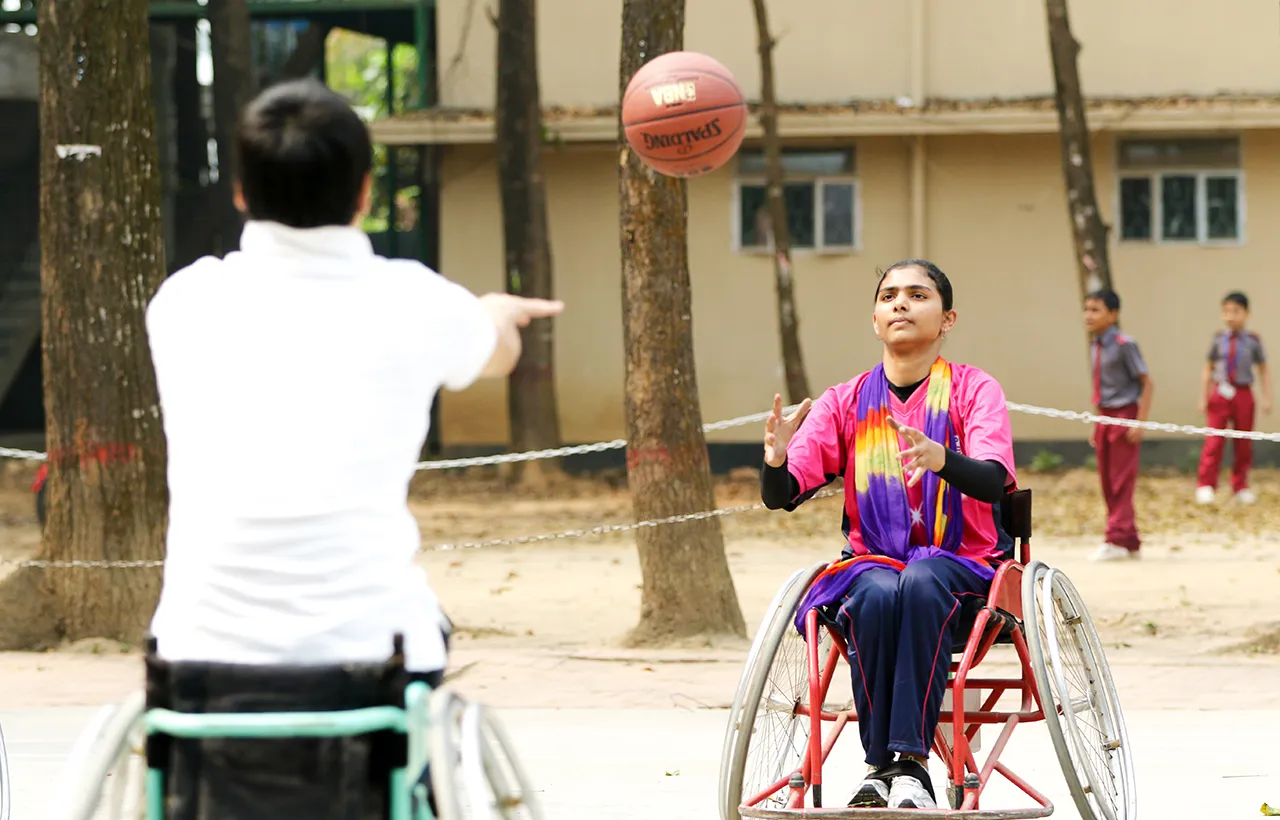
Marzana
"I was 16 when I fell off a tree at my home in the village. Being a young disabled woman in Bangladesh, I faced challenges every step of the way. But my parents and loved ones cheered me on and ensured that I never gave up," says Marzana. Selected as the team's captain during the tournament in Bali, she couldn't contain her happiness when the side won all five matches against the host country.
Now I'm considered a celebrity among my family and friends. I just want to keep playing for my country and to see our team flourish.
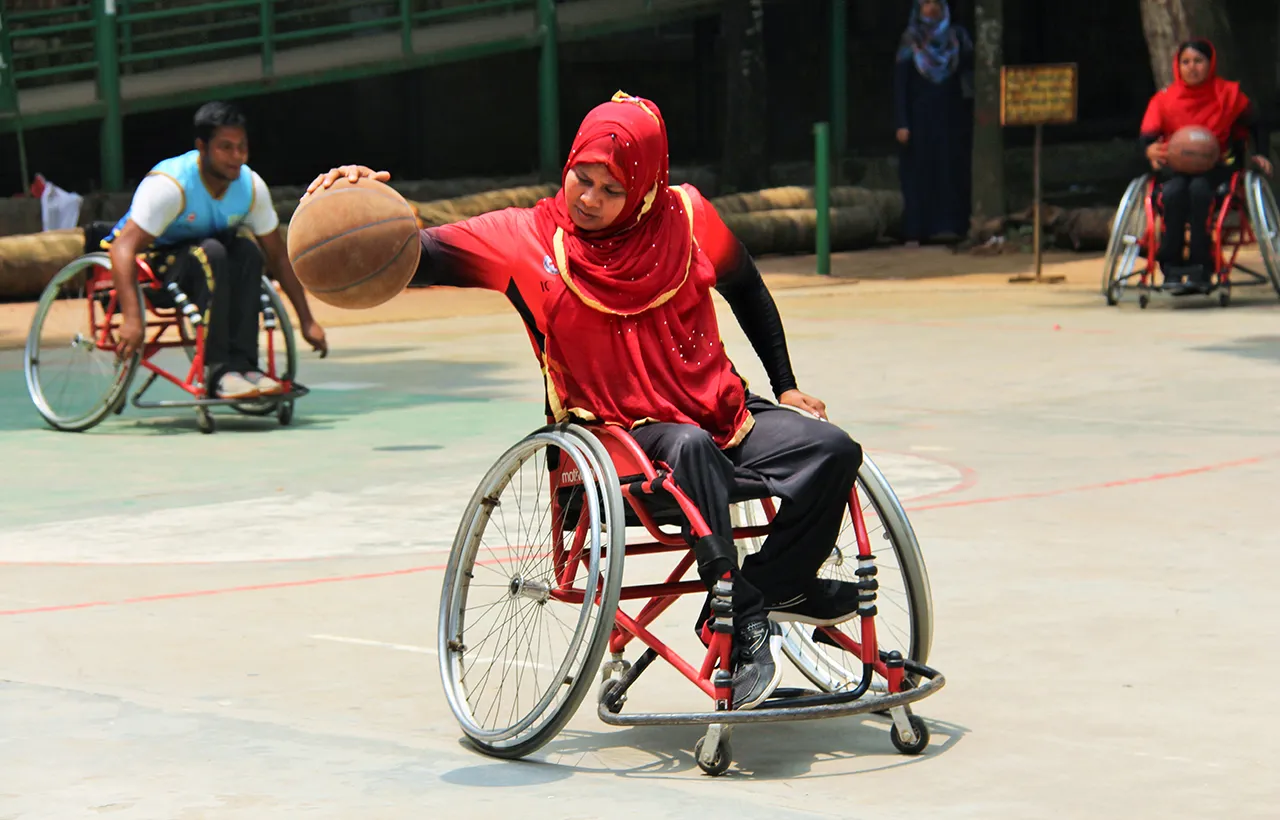
Lutfa Akter
Only three when she contracted polio, Lutfa Akter says basketball helped her break the mental shackles of disability. "I have to travel over 100 km from my hometown to play at the centre but the passion for basketball is so strong that nothing can keep me away."
I find it liberating!
The first overseas tournament opened up a new world for Lutfa. "Even traveling to Dhaka was a distant dream. But going to a new land outside Bangladesh was surreal," she reminisces.

